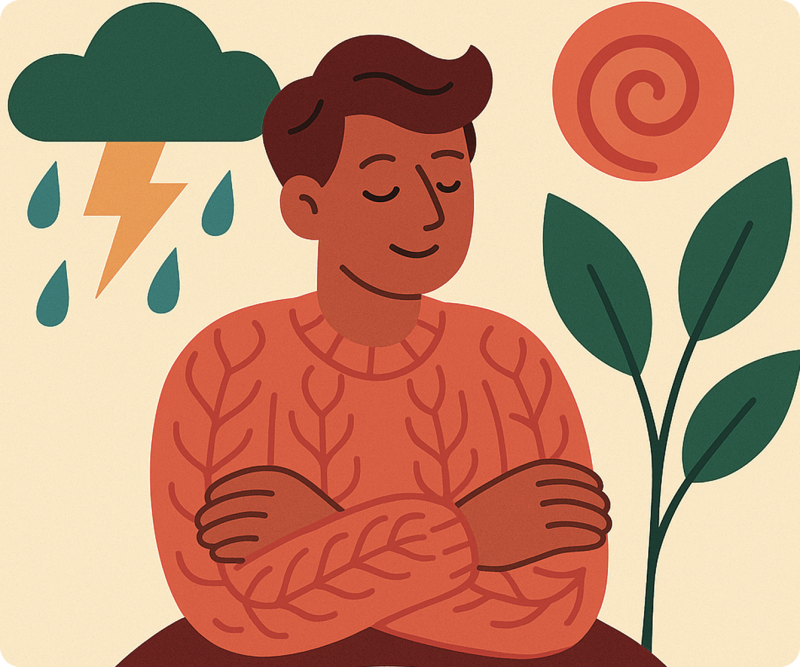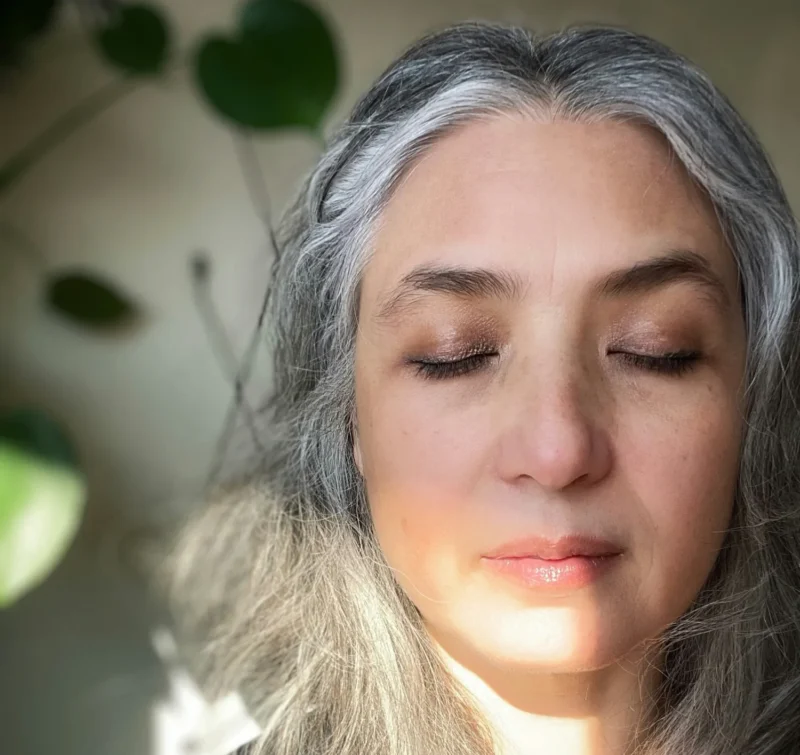
Depression
It’s normal to feel sad or low from time to time, especially during difficult periods in life. However, clinical depression is more than just feeling “down.” It’s a serious mental health condition that can affect how you feel, think, and function day to day. Depression can be long-lasting and can impact your mood, energy levels, physical health, motivation, relationships, and overall sense of self. If you’re struggling, you’re not alone and help is available.
Common signs & symptoms
Depression looks different for everyone, but common signs may include:
- Persistent feelings of sadness, hopelessness or emptiness
- Loss of interest or pleasure in activities once enjoyed
- Changes in appetite or weight
- Sleep disturbances (insomnia or oversleeping)
- Low energy or fatigue
- Difficulty concentrating or making decisions
- Withdrawal from social activities
- Irritability or restlessness
- Feelings of worthlessness or guilt
- Thoughts of death or suicide
If you recognise some of these symptoms in yourself or someone you care about, it may be time to seek support.
What causes Depression?
Depression is complex and can be influenced by a variety of factors, including:
- Family history of depression or other mental health conditions
- Stressful life events (such as relationship breakdowns, job loss, or bereavement)
- Ongoing health problems or chronic pain
- Hormonal or neurobiological changes
- Lack of social support or meaningful connections
- Personality factors such as high sensitivity or low self-esteem
- Unhelpful thinking patterns and coping strategies
- Sometimes, there may be no clear cause at all. That doesn’t make your experience any less real or valid.
Treatment for Depression
The good news is that depression is treatable. At Seed Psychology, our experienced psychologists use evidence-based therapies such as Cognitive Behavioural Therapy (CBT) to help clients understand and shift the thoughts, behaviours, and patterns that maintain depression.
CBT and other therapies can help you:
- Understand the underlying causes of your depression
- Learn effective coping and problem-solving strategies
- Reconnect with your values and sense of purpose
- Improve self-esteem and emotional resilience
- Regain a sense of control and hope for the future
In more severe cases, psychological treatment may be used alongside medication. Our psychologists can work collaboratively with your GP or psychiatrist to ensure coordinated care.
Through connection,
change is possible
Our compassionate team at Seed Psychology is here to help you regain your wellbeing and navigate life’s challenges with greater confidence and clarity. Connect with us to book an appointment with a psychologist in our Brunswick clinic or via telehealth Australia-wide.
Available resources
Meet our amazing team of therapists
Our diverse team of psychologists offer individual, couples, and online therapy, as well as assessments. Beyond their expertise, they bring humanity and care, providing respectful, affirming support tailored to each person’s unique experience.
Freqeuently asked questions
-
You do not need a referral to see a Psychologist at Seed Psychology. However, if you’d like to claim a Medicare rebate, you will need a Mental Health Care Plan (MHCP) from your GP. With a MHCP, you may be eligible for rebates on up to 10 sessions per calendar year. These sessions can be used at any psychology clinic of your choice. To access Medicare psychology rebates, book an appointment with your GP and ask for a Mental Health Care Plan. Most referrals begin with 6 sessions, with the option to access 4 more after a review. Referrals can also be provided by a psychiatrist or paediatrician.
-
Yes, we offer in person sessions at our Brunswick East practice and secure online appointments. Our online services make it easy to connect with your Psychologist from anywhere, offering flexibility without compromising on care. Whether you attend in person or online, you’ll receive consistent, high-quality support.
-
To book an appointment, simply use our booking form, or call our client care team on 9388 8113.
-
Our goal is to make mental health care approachable, inclusive, and clear—so you always know what to expect.
Individual Therapy Sessions
- Private clients (no referral): $255 – $285
- Clients with a MHCP: $230 – $285
- Medicare rebates: $96.65 – $141.85 per session (depending on the clinician)
- Private clients (no referral): $255 – $285
-
At Seed Psychology, your safety and wellbeing are our highest priorities. While we are here to support you through regular therapy sessions, we are not a crisis service and may not be available outside of scheduled appointments. If you or someone you care about is in immediate danger, experiencing a mental health crisis, or needs urgent support, it’s important to seek help straight away through the appropriate emergency or crisis services. You can find a list of trusted organisations and services here that can provide immediate support when you need it most.











